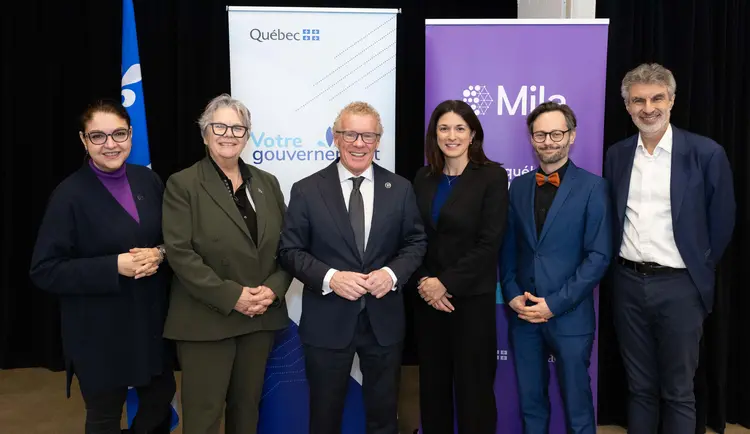July 8, 2020 – Mila welcomes the Québec government’s decision to grant it $65,000 to organize the deliberative component of UNESCO’s global online consultation on the ethics of artificial intelligence (AI), set to begin this month.
The worldwide consultation is part of the process UNESCO is currently conducting to produce a Recommendation on Ethics of Artificial Intelligence, which will be submitted to the organization’s 193 member states for approval in 2021. The Recommendation will be the first standard-setting instrument on AI in the UN system and in the world. It will support the drafting and application of national and international AI legislation, policies and strategies.
In the coming months, UNESCO will conduct a consultation on the draft Recommendation prepared by the Ad Hoc Expert Group (AHEG) it appointed. In view of the COVID pandemic, the consultation will be entirely online. The aim is to open a global conversation with civil society stakeholders from wide-ranging backgrounds on how to establish inclusive AI governance. The three-pronged process will consist of an online survey, regional and national consultations, and deliberative workshops on five continents about the draft Recommendation produced by the AHEG.
Mila and its partner Algora Lab, an ethics laboratory attached to Université de Montréal, are coordinating the deliberative component of the consultation. They will organize some 60 online deliberative workshops in 25 countries with the help of a network of specially trained local ambassadors. More than 500 citizens will take part in the participatory face-to-face process by commenting or giving their point of view on future international ethical standards for AI.
Mila and Algora Lab will also apply their expertise to help build AI capacity and knowledge among all participants in UNESCO’s global consultation, and draft a report for submission to the AHEG at the end of August 2020.
Quotes:
“I am delighted that the experts at Mila and Algora Lab have been chosen by UNESCO to conduct, under the current pandemic conditions, this vitally important consultation on international ethical standards for artificial intelligence. It is indicative of Montréal’s new status as a hub of expertise on AI ethics and governance, and the excellence of the researchers and organizations that make up Québec’s AI ecosystem. By providing this assistance, the Government of Québec is supporting work on the first global standard-setting instrument on AI and opening a promising new avenue of collaboration with UNESCO, a natural partner for us.”
Nadine Girault, Minister of International Relations and La Francophonie and Minister of Immigration, Francization and Integration
“Mila is pleased to participate in UNESCO’s process for developing ethical standards for artificial intelligence. We thank the Government of Québec for its financial support for this project, which will support the creation of the world’s first standard-setting instrument on artificial intelligence.”
Valérie Pisano, President and CEO, Mila – Québec Artificial Intelligence Institute
“UNESCO’s deliberative platform aims to give citizens an opportunity to voice their opinions on the ethical development of AI. We are bringing to the international stage the inclusive, citizen-based approach that was used to develop the Montréal Declaration on Responsible AI in 2018. This process is fully aligned with UNESCO’s commitment to equity, inclusiveness and diversity. It is a privilege for Algora Lab and Université de Montréal to organize, in conjunction with Mila, a participatory process that will be conducted in five languages and reach often-overlooked populations.”
Marc-Antoine Dilhac, Director, Algora Lab, Université de Montréal
Highlights:
- The Ministère des Relations internationales et de la Francophonie is providing financial support in the amount of $35,000 and the Fonds de recherche du Québec in the amount of $30,000 through the Canadian Commission for UNESCO, which is working with the Government of Québec and mobilizing other partners to support the worldwide consultation.
- UNESCO is aiming to consult more than 50,000 people worldwide about its Recommendation on AI ethics. The group’s composition will take into account gender parity, geographic representation, age group and socioeconomic status.
- More information about the future instrument in AI ethics.
Source: Government of Québec





